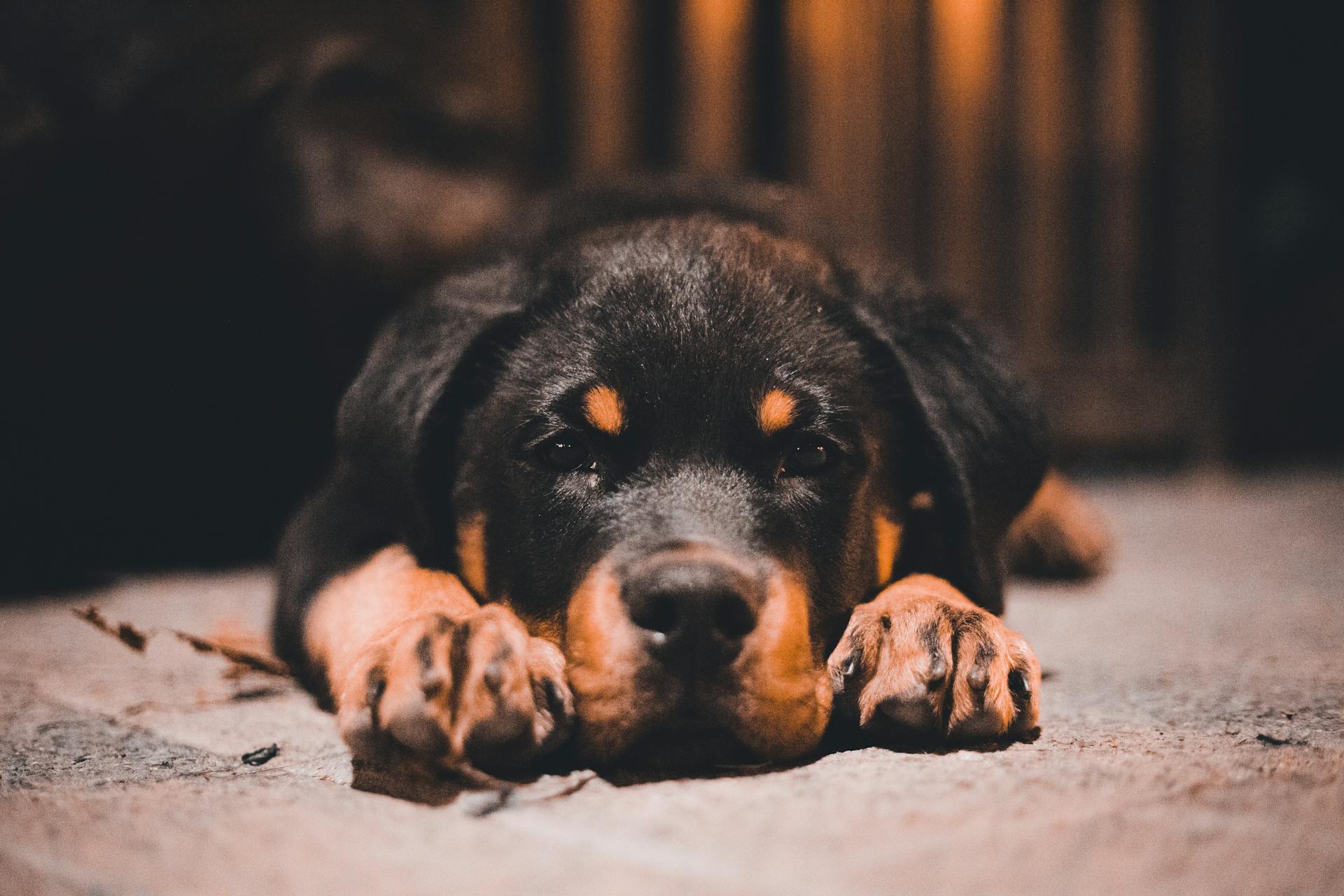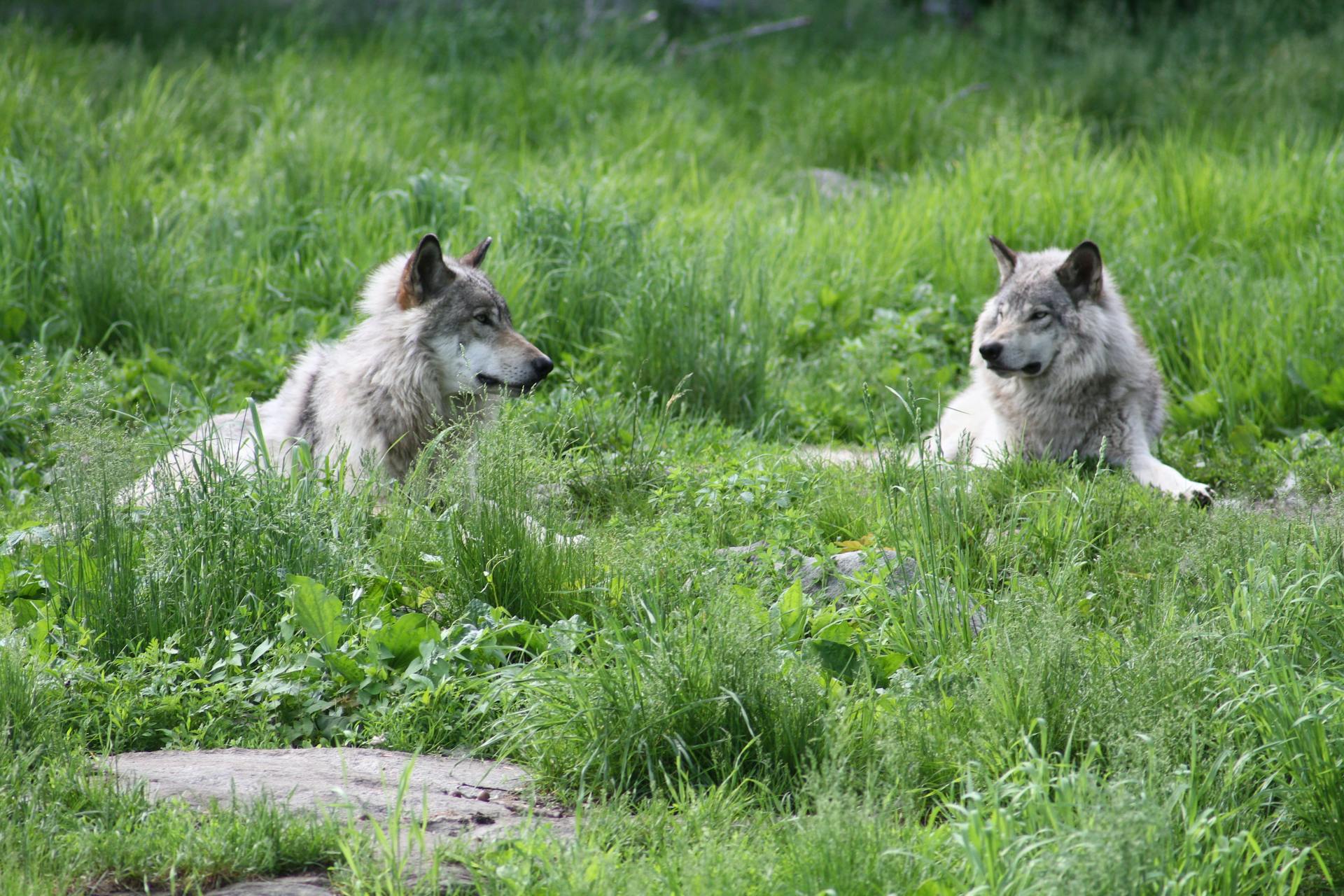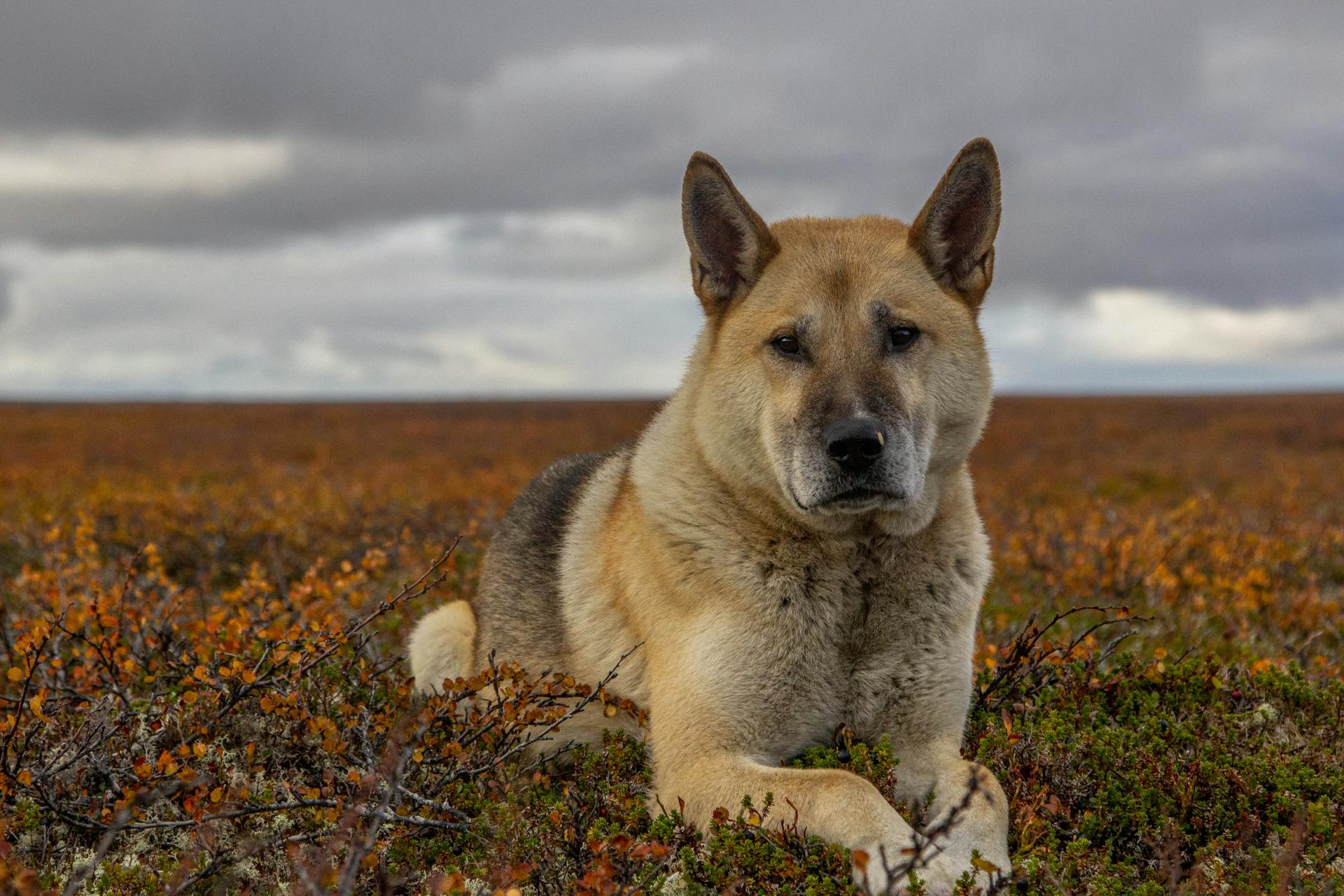
Rottweilers have a reputation for being aggressive, but is this really true? According to the American Temperament Test Society, Rottweilers have a passing rate of 85.8%, which is higher than many other breeds.
In the past, Rottweilers were used for guarding and police work, which may have contributed to their tough image. However, with proper training and socialization, Rottweilers can make loyal and loving companions.
Rottweilers are a large breed, with males weighing up to 135 pounds, which can be intimidating to some people. But size alone doesn't determine a dog's temperament.
Rottweiler Characteristics
Rottweilers have a distinctive coat with shiny black as the majority color, and reddish-brown spots above their eyes, on their cheeks, and on their four legs.
They can weigh anywhere from 77 to 130 pounds, with males typically being heavier than females.
Male Rottweilers can be up to 27 inches tall at the shoulders, while females are slightly smaller at 25 inches.
Their powerful bite is a notable characteristic, but it's also a calm and confident personality that defines this breed.
Rottweilers are loyal and gentle with their owners, making them great companions.
They have a natural watchdog instinct, but this doesn't mean they're naturally aggressive.
A strong bond between a Rottweiler and their owner is built on trust and loyalty, not fear or aggression.
Rottweilers are relatively easy to train, especially with positive reinforcement and socialization from an early age.
They're quick learners and want to please their owners, making training a breeze if done correctly.
However, it's essential to limit treats to 10% of their daily caloric intake to avoid obesity.
A fresh viewpoint: Are Rottweilers Good for First Time Owners
Rottweiler Behavior and Safety
Rottweilers are known to have a strong guarding instinct, which can sometimes manifest as aggression towards strangers. This is a natural behavior for the breed, inherited from their historical role as guard dogs.
A well-trained and socialized Rottweiler is less likely to turn on its owner, as they have learned to channel their instincts in a positive way. However, a badly handled Rottweiler who is abused or neglected may become aggressive towards its owner.
Rottweilers also have a strong prey drive, which can cause them to chase other pets or livestock if not properly socialized. This is a result of their herding background, and can be managed with early socialization and training.
To prevent aggression in Rottweilers, responsible ownership is key. This includes providing early obedience training, socialization, and exercise to keep them physically and mentally stimulated. A well-exercised and mentally stimulated Rottweiler is less likely to become problematic.
Here are some key factors to consider when owning a Rottweiler:
- Training: Start obedience training early, using positive reinforcement and focusing on socialization.
- Socialization: Expose your dog to various people, animals, and environments from puppyhood in a controlled manner.
- Exercise: Provide sufficient physical and mental stimulation. Bored dogs are more likely to become problematic.
- Supervision: Don't leave dogs unsupervised with children or other animals they don't know well.
Natural Guarding Traits
Rottweilers have a strong natural guarding instinct that has been bred into them for centuries. This means they'll often defend their family, property, and territory from strangers.
Their guarding instincts exist even today, and it's not uncommon for a Rottweiler to show aggression if a stranger approaches their family. In fact, many irresponsible owners use Rottweilers as backyard guards without proper training, which can lead to aggression.
For more insights, see: Are Rottweilers Good Dogs for Families
If you're considering getting a Rottweiler, it's essential to remember that they can be naturally protective and may respond aggressively if not handled properly. A well-trained Rottweiler is a wonderful companion, but one that's not trained or socialized correctly can become a liability.
Here's a breakdown of the potential guarding traits you can expect from a Rottweiler:
- They may show aggression towards strangers or unfamiliar people
- They can be protective of their family and territory
- They require proper training and socialization to channel their guarding instincts correctly
By understanding these traits, you can take steps to ensure your Rottweiler is a loving and well-adjusted companion, rather than a potential threat.
What to Do After a Dog Bite
If you've been bitten by a Rottweiler, it's essential to take immediate action to reduce the risk of infection and promote speedy healing.
Clean the wound thoroughly by rinsing it with soap and warm water for at least five minutes to remove dirt or bacteria. Cover the bite with a clean, dry bandage.
If the wound is bleeding, apply pressure with a clean cloth or bandage to stop the bleeding. Elevate the affected area if possible to help reduce swelling.
Even if the wound seems minor, it's crucial to seek medical attention from a healthcare professional to assess the injury and determine if further treatment is needed.
If the dog that bit you is a stray or you don't know its owner, report the incident to your local animal control agency to help identify the dog and prevent it from biting someone else.
You may be entitled to compensation for your injuries, so it's a good idea to speak to an attorney.
Here's a quick summary of the steps to take after a dog bite:
- Clean the wound with soap and warm water
- Apply pressure to stop bleeding and elevate the affected area
- Seek medical attention from a healthcare professional
- Report the bite to local animal control
- Speak to an attorney about potential compensation
Rottweiler Ownership and Care
Rottweilers, like any other breed, are not inherently dangerous with responsible ownership. Training is key, so start obedience training early using positive reinforcement and focusing on socialization.
Socialization is crucial, so expose your Rottweiler to various people, animals, and environments from puppyhood in a controlled manner. This will help them become confident and calm in new situations.
Providing sufficient physical and mental stimulation is essential, as bored dogs are more likely to become problematic. Regular exercise and playtime will keep your Rottweiler happy and healthy.
Here are some essential care tips for Rottweilers:
- Training: Start obedience training early, using positive reinforcement and focusing on socialization.
- Socialization: Expose your Rottweiler to various people, animals, and environments from puppyhood in a controlled manner.
- Exercise: Provide sufficient physical and mental stimulation.
- Supervision: Don't leave Rottweilers unsupervised with children or other animals they don't know well.
Responsible Ownership: Preventing Aggression
Responsible ownership is key to preventing aggression in Rottweilers, just like any other breed. Rottweilers are among the most popular breeds in the U.S., and if they were prone to turning on their owners, they wouldn't be so well-liked.
Proper training is essential, and it's best to start obedience training early, using positive reinforcement and focusing on socialization. This will help your Rottweiler become a well-adjusted companion.
Socialization is also crucial, and you should expose your dog to various people, animals, and environments from puppyhood in a controlled manner. This will help your Rottweiler become confident and calm in new situations.
Exercise is vital, and providing sufficient physical and mental stimulation will prevent boredom, which can lead to problematic behavior. A tired Rottweiler is a happy Rottweiler.
Here are the key elements of responsible ownership:
- Training: Start obedience training early, using positive reinforcement and focusing on socialization.
- Socialization: Expose your dog to various people, animals, and environments from puppyhood in a controlled manner.
- Exercise: Provide sufficient physical and mental stimulation.
- Supervision: Don't leave dogs unsupervised with children or other animals they don't know well.
Remember, every dog is an individual, and with the right care and attention, your Rottweiler can be a loving and loyal companion.
Caring for
Caring for your Rottweiler requires attention to their exercise needs. Rottweilers need at least 30 minutes of exercise per day to stay healthy and happy.
A high-quality diet is essential for your Rottweiler's overall health. Feed them a balanced diet that includes protein-rich foods, such as chicken and beef.
Rottweilers are prone to obesity, so monitor their food intake and avoid overfeeding. A good rule of thumb is to feed them twice a day, and avoid giving them table scraps.
Regular grooming is also important for Rottweilers. Brush their coat at least twice a week to prevent matting and tangling.
Rottweilers are known to be loyal and loving companions, but they do require regular training and socialization. Start training your Rottweiler early, and be consistent with their training to avoid behavioral problems.
Regular veterinary check-ups are crucial for maintaining your Rottweiler's health. Schedule annual check-ups with your veterinarian to keep your Rottweiler healthy and happy.
Intriguing read: Do Rottweilers Growl When Happy
Frequently Asked Questions
Are Rottweilers on the Dangerous dog List?
No, Rottweilers are not typically considered a "dangerous dog breed" despite their history as guard dogs, but their breeding history is often compared to that of Pit Bulls.
Are Rottweilers genetically aggressive?
Rottweilers are not inherently aggressive due to their genetics, but rather their behavior is shaped by a combination of genetics, upbringing, and environment. Understanding these factors is key to raising a well-adjusted and loving Rottweiler companion.
Sources
- https://puccicafe.com/is-the-rottweiler-a-dangerous-breed/
- https://www.askadamskutner.com/dog-bites/bite-statistics-according-to-dog-breed/
- https://www.shouselaw.com/ca/blog/dog-attack-statistics-by-breed/
- https://spotpet.com/blog/breed-tips/most-aggressive-dog-breeds
- https://www.webmd.com/pets/dogs/what-to-know-about-rottweilers
Featured Images: pexels.com


